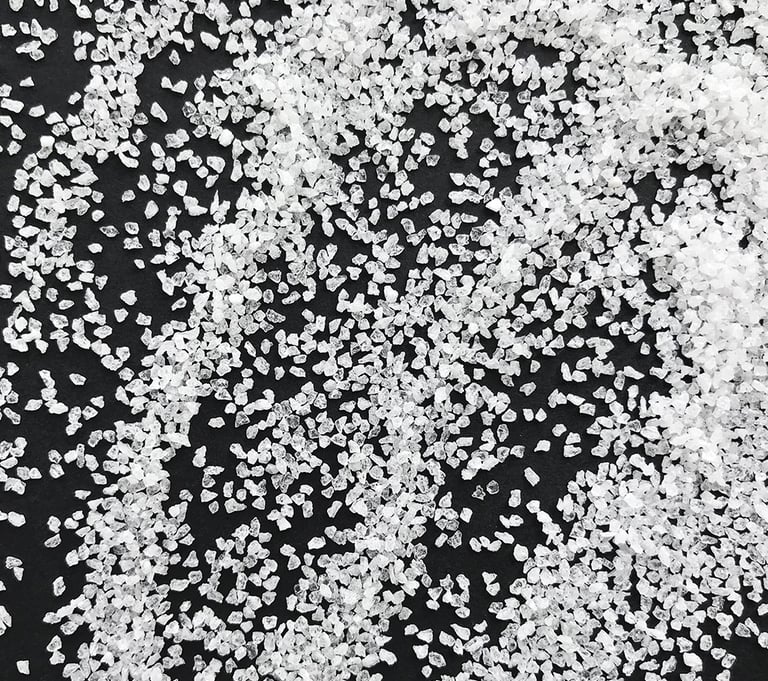How Paper Factories Use White Fused Alumina in Coated Paper Production
Discover how paper factories use white fused alumina in coated paper production to enhance surface smoothness, durability, and brightness for premium printing papers.
XINLI ABRASIVE
10/16/20251 min read


Introduction
White fused alumina (WFA) is well-known as an abrasive material, but its use extends beyond grinding and polishing. In the paper manufacturing industry, WFA is increasingly used as a functional additive in coated papers — helping enhance surface gloss, opacity, print quality, and wear resistance.
1. The Role of Coated Paper and the Need for Additives
Coated papers are widely used in magazines, packaging, and advertising printing. To achieve high gloss and fine print resolution, the paper surface must be extremely smooth and durable. Traditional fillers like kaolin or calcium carbonate provide good whiteness but lack hardness and wear resistance.
This is where white fused alumina offers a solution — combining fine particle size, high hardness (Mohs 9), and chemical stability, making it an ideal substitute or complement for conventional fillers.
2. Coating Process and Integration of White Fused Alumina
The coating process involves applying a fine suspension (coating color) to the paper base. The suspension typically contains pigments, binders, and additives. White fused alumina is introduced during this stage in one of two ways:
As a fine powder additive (1–5 μm): Added directly to the coating formulation to improve micro-level surface texture and gloss.
As a top-coat modifier (0.5–1 μm): Used in high-end printing papers to enhance ink adhesion and scratch resistance.
3. Benefits of Using White Fused Alumina in Paper Coating
Improved Surface Hardness: Reduces micro-scratches and wear during printing.
Enhanced Gloss and Smoothness: Fine alumina particles fill in micro-gaps.
Stable Whiteness: Maintains brightness even after calendering and drying.
Chemical Resistance: Excellent resistance to ink solvents and moisture.
Eco-friendly and Non-toxic: Suitable for food packaging and sustainable paper products.
4. Typical Applications
Premium coated paper for magazines
High-end art paper and photographic paper
Packaging board with scratch-resistant surface
Specialty papers for laser and inkjet printing
Conclusion
White fused alumina provides a new performance dimension to coated papers — not just improving appearance, but ensuring durability and precision in modern printing processes. As sustainable materials gain traction, WFA’s inert and recyclable nature makes it an ideal choice for eco-friendly coated paper manufacturing.


